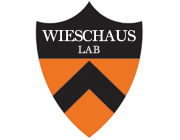Simple biochemical pathways far from steady state can provide switchlike and integrated responses.
Type
Covalent modification cycles (systems in which the activity of a substrate is regulated by the action of two opposing enzymes) and ligand/receptor interactions are ubiquitous in signaling systems and their steady-state properties are well understood. However, the behavior of such systems far from steady state remains unclear. Here, we analyze the properties of covalent modification cycles and ligand/receptor interactions driven by the accumulation of the activating enzyme and the ligand, respectively. We show that for a large range of parameters both systems produce sharp switchlike response and yet allow for temporal integration of the signal, two desirable signaling properties. Ultrasensitivity is observed also in a region of parameters where the steady-state response is hyperbolic. The temporal integration properties are tunable by regulating the levels of the deactivating enzyme and receptor, as well as by adjusting the rate of accumulation of the activating enzyme and ligand. We propose that this tunability is used to generate precise responses in signaling systems.

